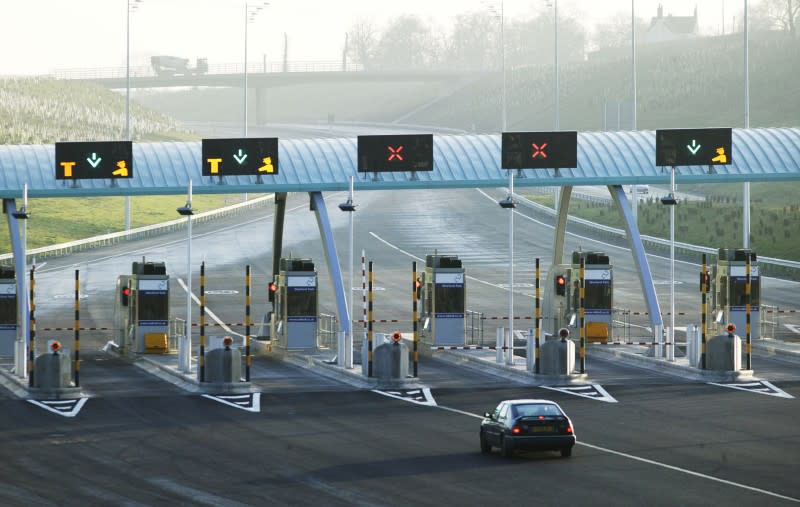Will Brexit put the brakes on UK infrastructure deals? Short-term, maybe
By Paul Sandle
LONDON (Reuters) - Delays in the sale of a toll road and awarding an eastern rail franchise may indicate that international investors are reassessing Britain's status as a prime investment location following the Brexit vote, at least in the short term.
Britain has attracted more foreign investment in infrastructure than any other European country, with China and Canada heading a long list of buyers attracted to the country's stable regulatory environment and open approach.
But the vote to leave the European Union has stunned the financial community, throwing future growth into doubt and raising questions about how the world's fifth-largest economy will conduct trade with its former partners in the bloc.
Infrastructure investors, who work in 25-year or longer timeframes, value stability above all things. In the turbulent wake of Brexit, sources tell Reuters that two projects that should have been announced by now look to be delayed, indicating that short-term, some recalibrations are likely to be taking place, especially given the sudden devaluation of the pound.
"The depth of opportunity in the UK means so much to investors. But capital can flow anywhere," said Adam Hain, senior managing director at Macquarie Capital, responsible for infrastructure and utilities.
"Policy risk, regulatory frameworks, government, all those things will determine investments. There's probably a lot of transactions that will be on hold because people will wait and see who will be in government."
Prime minister Theresa May, whose first full day in the job was only on Thursday, has said Britain is open for business. She will find several large projects awaiting approval in her in-tray, from airport expansions to a new high-speed train line and the Hinkley Point nuclear power station.
BIRMINGHAM TOLL ROAD
The sale of Britain's only privately owned and operated motorway, the M6 Toll around Birmingham, has already been put on ice, according to a source familiar with the deal. It was put up for sale by a consortium of banks who were looking to recoup around 1.9 billion pounds.
UBS had been ready to send a prospectus, but details of the investment case were based on a "remain" victory, and need to be revised after the Brexit vote, the source said.
"The M6 toll has a strong investment case that we don't expect to be materially impacted by Brexit and the sale process continues to move forward," the source, who is close to the sellers, said.
The award of the East Anglia rail franchise to run services between London and the east of England, including Norwich, has also been delayed, industry sources said.
Current operator Abellio, First Group (FGP.L) and National Express (NEX.L) are competing for the franchise, which was originally due to have been awarded by the end of June.
Asked about the award, a Department for Transport spokeswoman said the bids were being assessed and the winning bidder would be announced in due course.
A rail industry source said the implications of Brexit were a focus of talks between the bidders and the government.
A slowdown in the economy exacerbated by the short-term effects of Brexit could hit passenger growth, making it tough to meet profit targets in the early years of the franchise, according to Jefferies analyst Joe Spooner.
"Being bid before the Brexit vote but operated in a potentially softer post-Brexit economy, this may be a franchise bidders are now happy to lose," he said in a note.
The bidding companies declined to comment.
Professional services firm EY's Head of Infrastructure Corporate Finance, Manish Gupta, said there was a division between assets aligned with Britain's economic growth, such as airports, ports and railways, and others where income is highly regulated, like water utilities.
"Equity investors, such as Canadian pension funds, are basically buying assets to hold on for the next 25 years," he said. "Any assets that are exposed to the economy directly, that's where they would have to look at the credit risk a lot more closely."
SIT IT OUT
Ratings agency Moodys said the biggest immediate impact for infrastructure would come from the fall in the value of the pound -- currently trading at 31-year lows -- particularly when it comes to transport assets.
"In the short-term, it is mostly the exchange rate impact and reduction in spending by British consumers that we are expecting to see," said senior analyst Raffaella Altamura.
"In the longer term it really depends on the overall impact on trade flow, migration, population growth and of course GDP trends."
With the pound so low, assets could be cheaper to buy. However the building of new projects could become more costly if materials are brought in from abroad.
S&P Global Ratings analyst Michael Wilkins said currency volatility was a major concern for infrastructure investors.
"The impact of the devaluation as far as infrastructure is concerned is a double-edged sword," he said.
It potentially could boost exports, which helps the government try to shore up its current account deficit, he said.
"But from the point of view of infrastructure projects which are importing equipment or large-scale assets, such as off-shore wind turbines that are imported, it's going to increase their cost base," he said.
He said that while some investors would take advantage of the fall in the pound to buy assets on the cheap, most would wait.
"Longer-term players -- and infrastructure is a long-term play -- will probably look beyond the currency volatility to the more fundamental factors of the UK," he said.
"It will be a question of sitting on the sidelines and waiting for the dust to settle."
(Additonal reporting by Karolin Schaps; Editing by Sonya Hepinstall)

 Yahoo Finance
Yahoo Finance 

